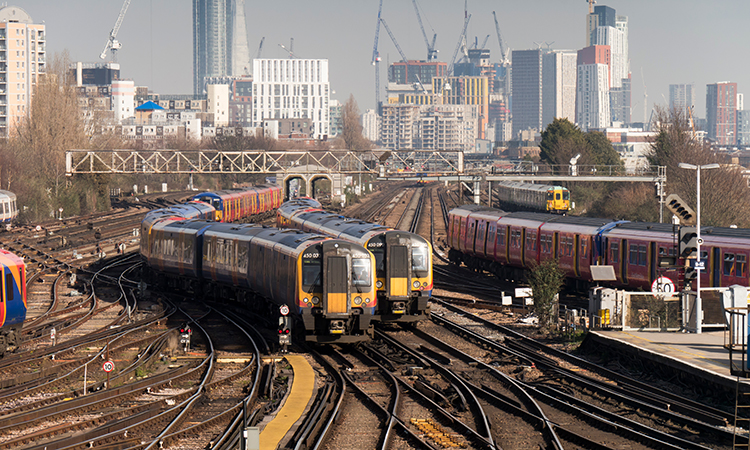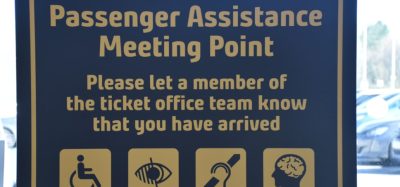UK government ends rail franchising in bid to connect fragmented network
Posted: 21 September 2020 | Global Railway Review | No comments yet
As part of its efforts to connect the UK’s fragmented rail network and support operators through COVID-19, the UK government has begun the process to end railway franchising.


UK Ministers have ended rail franchising after 24 years as the first step in bringing Britain’s fragmented network back together.
The new system, creating a simpler and more effective structure, will take shape over the coming months. The first stage, which has now begun, is moving operators onto transitional contracts to prepare the ground for the new railway.
From 21 September 2020, franchising is replaced with more demanding Emergency Recovery Management Agreements (ERMAs). These address the continuing impact of the COVID-19 pandemic on the railway and delivers on a UK government commitment to replace the current franchising system.
These management agreements have tougher performance targets and lower management fees. The new contracts allow the Department for Transport (DfT) to make an early start on key reforms, including requiring operators to co-ordinate better with each other and driving down the railways’ excessive capital costs.
Management fees will now be a maximum of 1.5 per cent of the cost base of the franchise before the pandemic began. The ERMAs are a transitional stage to the new system, which is the biggest change to the railways in a quarter of a century.
Under current public health guidance, the intention is also for operators to run an almost full service, to ensure that there is space to help passengers travel safely.
ERMAs pave the way for wider a rail industry reform that prioritises the passenger. In 2018, Keith Williams, the chairman of Royal Mail, was asked to review the railways after a chaotic timetable change and the failure of some franchises. This announcement, which has his full support, is the prelude to a whitepaper which will respond to his recommendations. The whitepaper will be published when the course of the pandemic becomes clearer.
The UK’s Transport Secretary, Grant Shapps, said: “The model of privatisation adopted 25 years ago has seen significant rises in passenger numbers, but this pandemic has proven that it is no longer working. Our new deal for rail demands more for passengers. It will simplify people’s journeys, ending the uncertainty and confusion about whether you are using the right ticket or the right train company. It will keep the best elements of the private sector, including competition and investment, that have helped to drive growth – but deliver strategic direction, leadership and accountability. Passengers will have reliable, safe services on a network totally built around them. It is time to get Britain back on track.”
Until passenger numbers return, significant taxpayer support will still be needed, including under the transitional contracts that have been announced. However, the reforms will enable substantial medium and longer-term savings for taxpayers.
Keith Williams, chair of the Williams Review, said: “These new agreements represent the end of the complicated franchising system, demand more from the expertise and skills of the private sector and ensure that passengers return to a more punctual and co-ordinated railway. I am ensuring the recommendations I propose are fit for a post-COVID-19 world, but these contracts kickstart a process of reform that will ensure our railways are entirely focused on the passenger, with a simpler, more effective system that works in their best interest.”
Industry responses
Rail Delivery Group
Paul Plummer, Chief Executive of the Rail Delivery Group (RDG), said: “We welcome the ongoing support to keep trains running for passengers and the government’s confirmation of an end to the franchise system, which we have long been calling for. These transitional contracts should be a stepping-stone to a better railway. This needs to harness the experience, innovation and investment private sector operators bring, with local train companies taking the decisions that affect their passengers. It should be overseen by a new guiding mind for the whole industry and underpinned by a simpler to use fares system.”
He continued: “A renewed and reinvigorated partnership between the public and private sectors will be the best way to improve services and help regrow the market for train travel, which is good for economic recovery and the public finances. Combined with the measures the industry is taking to keep trains clean, this announcement means people can continue to travel with confidence.”
FirstGroup
Commenting on the announcement, FirstGroup’s Chief Executive, Matthew Gregory, said: “The government has extended its funding of the rail industry whilst demand for services remains heavily affected by coronavirus, and we are pleased that the vital nature of rail services to communities and local economies is being recognised. Passengers can be confident that public transport is safe and, across our rail networks, we have increased service levels to provide more capacity as schools restart and many more workplaces and other facilities reopen. We are now operating at around 90 per cent of the rail services we were prior to the pandemic. We will continue to bring all of our expertise to bear alongside government and industry partners to deliver the next phase of recovery of the rail network.”
“Together with the earlier Great Western Railway (GWR) extension, these agreements reinforce our balance sheet position and provide a potential path for our rail business to move onto a new contractual footing over time, with a more appropriate balance of risk and reward for all parties. We have long advocated for a more sustainable long-term approach to the railway, with passengers at its centre, and we look forward to working constructively with the DfT to make this a reality,” he added.
Transport for the North
David Hoggarth, Strategic Rail Director for Transport for the North (TfN), said: “This is a significant moment for our railways with franchising as we know it ending after 24 years. The Department for Transport has made clear to us that our work in jointly overseeing rail operators in the North will continue under the Emergency Recovery Measures Agreements (ERMAs). We have seen significant progress towards greater oversight in the North, both since the timetable crisis of 2018 and throughout the pandemic. Local decision-makers have helped shape operating decisions for the benefit of passengers and this needs to continue. These new transitional contracts will help us prepare for further reform as we work towards a more cohesive railway which can respond better to passenger needs as reflected in our submissions to the Williams Review.”
Related topics
Coronavirus/COVID-19, Franchising, Operational Performance, Passenger Experience/Satisfaction, The Workforce
Related organisations
Department for Transport (DfT), FirstGroup plc, Great Western Railway (GWR), Rail Delivery Group (RDG), Royal Mail, Transport for the North (TfN)
Related regions
Related people
David Hoggarth, Grant Shapps, Keith Williams, Matthew Gregory, Paul Plummer







